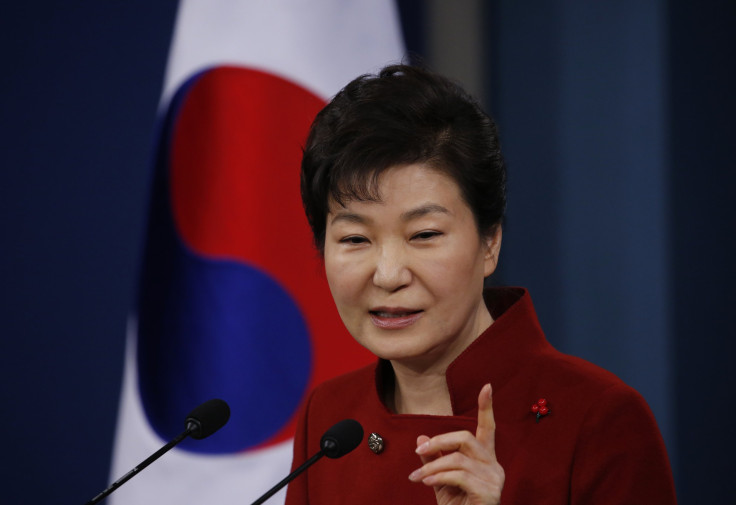South Korea Urges China To Help Punish North Korea, While Chinese Envoy Calls For Strengthening Friendship With Pyongyang

South Korean President Park Geun-hye urged China Wednesday to help punish North Korea through strong international sanctions over its fourth nuclear test last week that drew criticism from several world powers. Park’s comments came after Seoul said Pyongyang flew leaflets across the border that described Park and her administration as “mad dogs.”
Park said Wednesday during a televised news conference in Seoul that while South Korea tries to get international sanctions implemented against the North, China’s help is crucial, the Associated Press (AP) reported.
"North Korea's nuclear test is an unacceptable challenge to peace and security in Northeast Asia and the world," Park said during her address, according to Yonhap, adding that China needs to play a “necessary role” in implementing strong sanctions against Pyongyang. She also said China should realize it cannot keep North Korea from conducting "a fifth or sixth nuclear test" until China’s commitment translates into action.
Beijing is seen as North Korea's diplomatic and economic protector and although China criticized Pyongyang's nuclear test, experts fear that Beijing may not go too far against North Korea. China may be concerned about a massive flow of refugees from North Korea across its own border and to South Korea if the North Korean government, led by Kim Jong Un, were toppled.
Amid calls from South Korea for China to take strict actions against Pyongyang, another report by Yonhap said that a Chinese ambassador to North Korea, Li Jinjun, recommended a stronger relationship for China with North Korea while addressing Chinese students living in Pyongyang. This was Li’s first public activity since North Korea's announcement of a nuclear bomb test last week, and he urged the students to develop “the friendship between China and North Korea from generation to generation,” according to Yonhap.
South Korea began propaganda broadcasts against the North near the two countries' border on Friday. North Korea initially responded with its own broadcasts to prevent its soldiers from hearing the South Korean propaganda. Later, the North allegedly responded with a rare leaflet campaign near the border. It is usually South Korean activists who send anti-Pyongyang leaflets across the border.
The leaflets, which the South believes were sent by North Korea’s military, read, "Let's knock down the Park Geun-hye group like we do mad dogs" and "The U.S. must immediately stop its anachronistic hostile policy on North Korea," according to AP.
The South Korean president also said that closing down the Kaesong industrial park, developed jointly by Seoul and Pyongyang, depends on the future actions of the North Korean leadership, Sputnik reported.
While other countries are trying to come up with sanctions against North Korea, Kim called upon his country to boost its nuclear capabilities.
"[Kim] called for bolstering up both in quality and quantity the nuclear force capable of making nuclear strikes at the U.S.-led imperialists any time and in any space ... if they encroach upon the sovereignty of the DPRK and make threatening provocations," North Korea’s official news agency KCNA reportedly said.
The report also said that Kim "set forth the important tasks to be fulfilled to bolster up the nuclear force," and called for the "detonation of more powerful H-bomb in the future."
Despite North Korea basking in the glory of its self-proclaimed successful test, experts have raised questions over the power of the bomb. The U.S. and other experts think that the latest blast was about the same size as that of an atomic bomb tested by North Korea in 2013 and not stronger, as a hydrogen bomb should be.
A report Tuesday also said Seoul and Washington could stage a joint military exercise as early as March to practice taking out nuclear facilities in North Korea. The joint exercises would deal with new counter-missile operations that can take on the nuclear weapons and other weapons of mass destruction that North Korea claims it possesses.
© Copyright IBTimes 2024. All rights reserved.






















